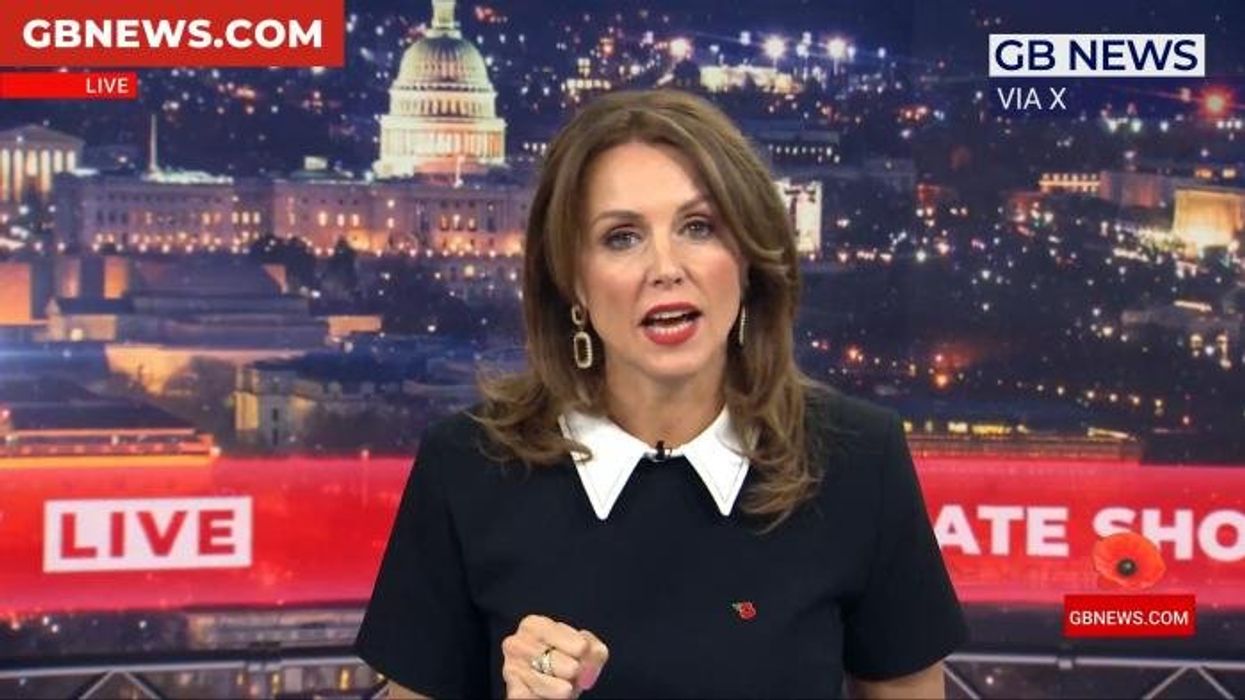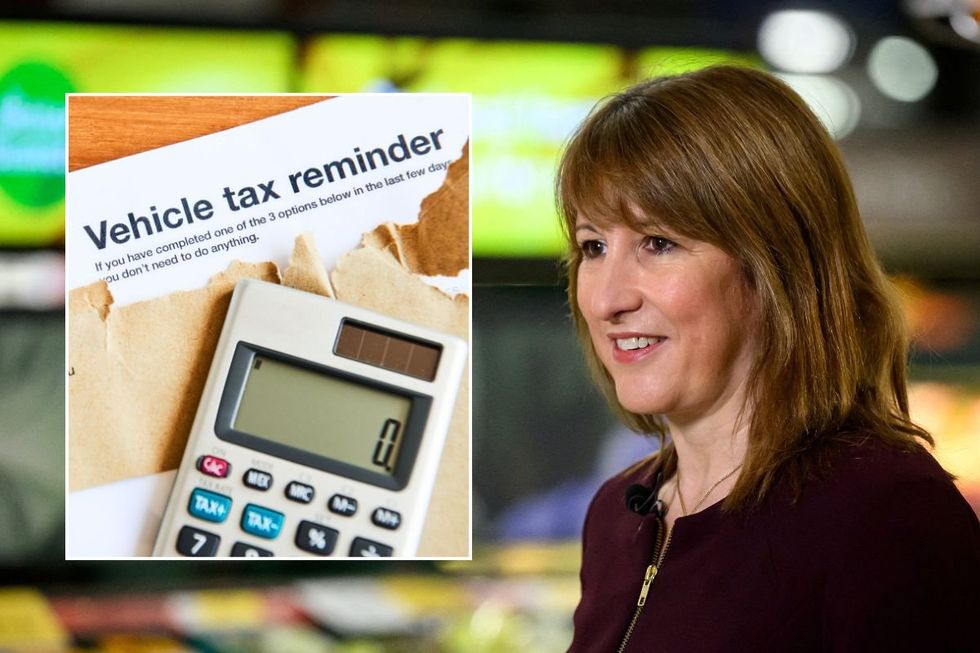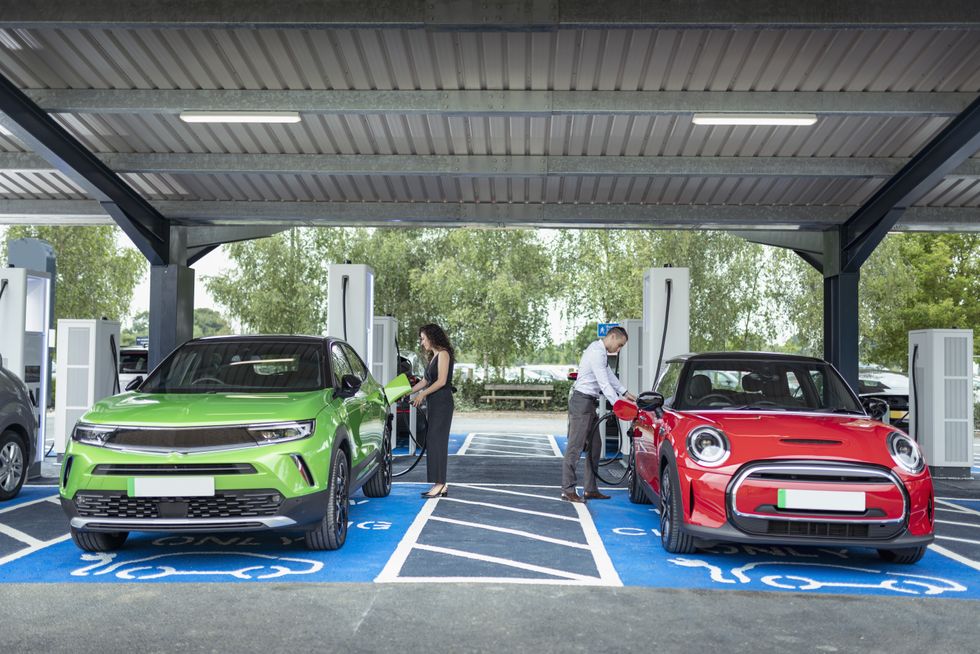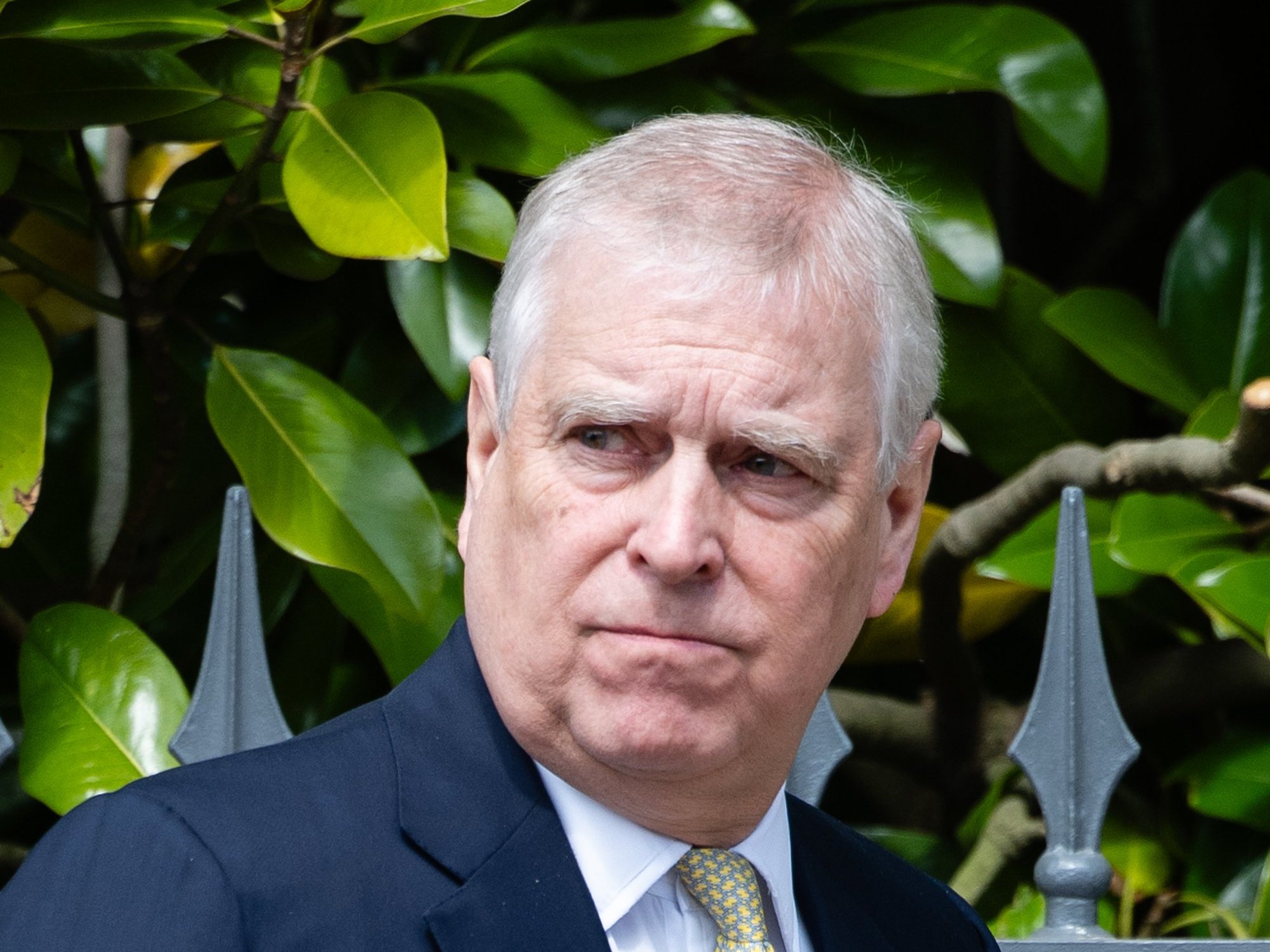Rachel Reeves urged to avoid slapping drivers with another Budget car tax hike - 'Can't punish them!'

WATCH: Bev Turner rages at Rachel Reeves amid plans to introduce pay-per-mile car taxes
|GB NEWS

Tax changes could be made to the Expensive Car Supplement
Don't Miss
Most Read
Latest
Experts are warning that drivers could be slapped with yet another car tax change in the upcoming Budget, as the Chancellor prepares to unveil new measures tomorrow.
Rachel Reeves will deliver the Government's Autumn Budget on Wednesday, November 26, with many expecting several significant changes that could impact millions of British drivers.
Reports have suggested that the Chancellor plans to launch new pay-per-mile car taxes for electric vehicle owners, despite mass disapproval of such a scheme.
The measures, which would be rolled out in 2028 and subject to a consultation, would see electric car owners pay three pence for every mile they travel.
TRENDING
Stories
Videos
Your Say
The move was met with backlash as critics accused the Government of deliberately slowing the uptake of electric vehicles at a critical point when taking future net zero goals into account.
Car taxes are also expected to be raised in line with inflation, further hitting drivers with additional costs from next April.
Stuart Masson, editorial director of The Car Expert, called on the Government to ensure drivers are not being unfairly targeted by taxes not meant for them.
He pointed to the Expensive Car Supplement, which requires motorists to pay £425 a year for five years if their vehicle has a list price of more than £40,000.
READ MORE: British drivers could be slapped with enormous £5,740 car tax charge next year after Budget update

Experts are calling on Chancellor Rachel Reeves to avoid hitting ordinary drivers with new tax charges
|GETTY/REUTERS
Many have called for the threshold to be hiked to £50,000, although the £425 charge could rise in line with inflation, adding another hike to driving expenses.
The expert warned that this was unfairly targeting "perfectly ordinary family SUVs and estate cars", which he said were "not luxury indulgencies".
Mr Masson continued, saying: "If we want families to move into cleaner, safer, more efficient models, we can't punish them with arbitrary charges.
"The UK Government needs to remember that support isn’t just about new cars. More than 80 per cent of car transactions in the UK are used.
"If people can't afford new models and the used market is strained for supply, prices rise. It's simple supply and demand."
LATEST DEVELOPMENTS
There have been fervent calls for the Government to change the terms of the Expensive Car Supplement to ensure people wanting to switch to electric vehicles, which tend to be more expensive, are not impacted.
Labour is expected to pledge £1.5billion for electric vehicles in the Budget, with £1.3billion going towards the Electric Car Grant, and £200million for the installation of EV chargers.
Despite this, critics have called for clarity with tax measures, as many drivers are likely to avoid choosing zero emission vehicles if they need to pay more tax.
This has been one of the most common arguments against the proposed pay-per-mile tax for electric car owners, given that EVs have only started paying Vehicle Excise Duty tax in April.
 Experts have called for the Government to raise the threshold of the Expensive Car Supplement | GETTY
Experts have called for the Government to raise the threshold of the Expensive Car Supplement | GETTYMr Masson added: "A stable, consistent strategy that the country commits to because the goal is clear, not because someone in Whitehall has had a bright idea that week."
A Government spokesperson told GB News that, while fuel duty exists for petrol and diesel vehicles, there is no equivalent for electric cars.
They added: "We want a fairer system for all drivers whilst backing the transition to electric vehicles, which is why we have invested £4billion in support, including grants to cut upfront costs by up to £3,750 per eligible vehicle.
"Just as it is right to seek a tax system that fairly funds roads, infrastructure and public services, we will look at further support measures to make owning electric vehicles more convenient and more affordable."










